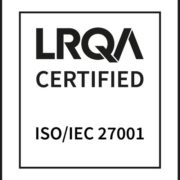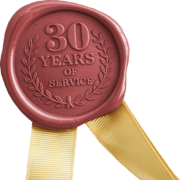Things a CRM Vendor won’t tell you
(But your implementation partner will)
As companies increasingly turn to customer relationship management (CRM) software to help manage and grow their businesses, it’s important to be aware of the things that the software vendors may not tell you. While CRM can be incredibly useful in streamlining processes, boosting productivity, and improving customer relationships, there are some things you should know before signing on the dotted line. In this article, we’ll discuss some things a CRM vendor isn’t likely to tell a customer up front.
The True Cost of Implementation and Maintenance
While the vendor may provide a base price for the software, there may be additional costs that are not included, such as setup fees, training costs, and ongoing maintenance fees. It’s important to understand the total cost of ownership before deciding to purchase any CRM solution.
Cost of Customisation
There may also be additional costs associated with customisation that aren’t immediately apparent. Customisation can range from simple configuration changes to complex code alterations, and these changes can rack up additional costs that a vendor may not initially mention.
Customisation Limitations
While CRM software is designed to be customisable to meet the unique needs of each business, there may be limitations to what can be customised. Vendors may not disclose the extent of customisation limitations or may over-promise what can be done. Ask about any limitations before committing to a CRM solution.
Implementation Timeframe
While vendors may promise a quick and easy setup process, the reality is that the implementation process can take longer than expected, particularly if there are customisation requirements or if data needs to be migrated from an existing system. Be sure to ask for a realistic timeframe for implementation before committing to a CRM solution.
Integration Challenges
While CRM software helps businesses manage customer relationships, it is not a one-size-fits-all solution. It’s important to understand that integrating a new CRM system with existing systems can be a challenge. CRM vendors may not be forthcoming about the difficulties of integrating their software with other systems, such as accounting, marketing automation, or e-commerce platforms.
Compatibility Issues
A CRM solution may seem perfect on the surface, but it may not integrate seamlessly into your existing systems. A vendor may not disclose compatibility issues between their CRM software and your other business software, leading to costly and time-consuming workarounds. It’s crucial to inquire about any potential compatibility issues to ensure that a CRM solution is a good fit for your business.
The Learning Curve
Switching to a new CRM solution is a significant change that may take time and resources to adjust to. A vendor may not disclose the learning curve associated with a new CRM system, leading to unexpected downtime and decreased productivity. It’s essential to ask about training and support options to mitigate any negative impact on your business during the transition.
Data Ownership
Finally, one thing that CRM vendors may not discuss is data ownership. While the data generated by the CRM system belongs to the business, there may be restrictions on how that data can be used or accessed. It’s important to understand the vendor’s policies on data ownership and to ensure that you keep full ownership and control of your customer data.
CRMs are valuable tools for managing customer relationships and growing your business. By asking the right questions and working with your implementation partner, can make an informed decision about the CRM solution that is right for your business.



